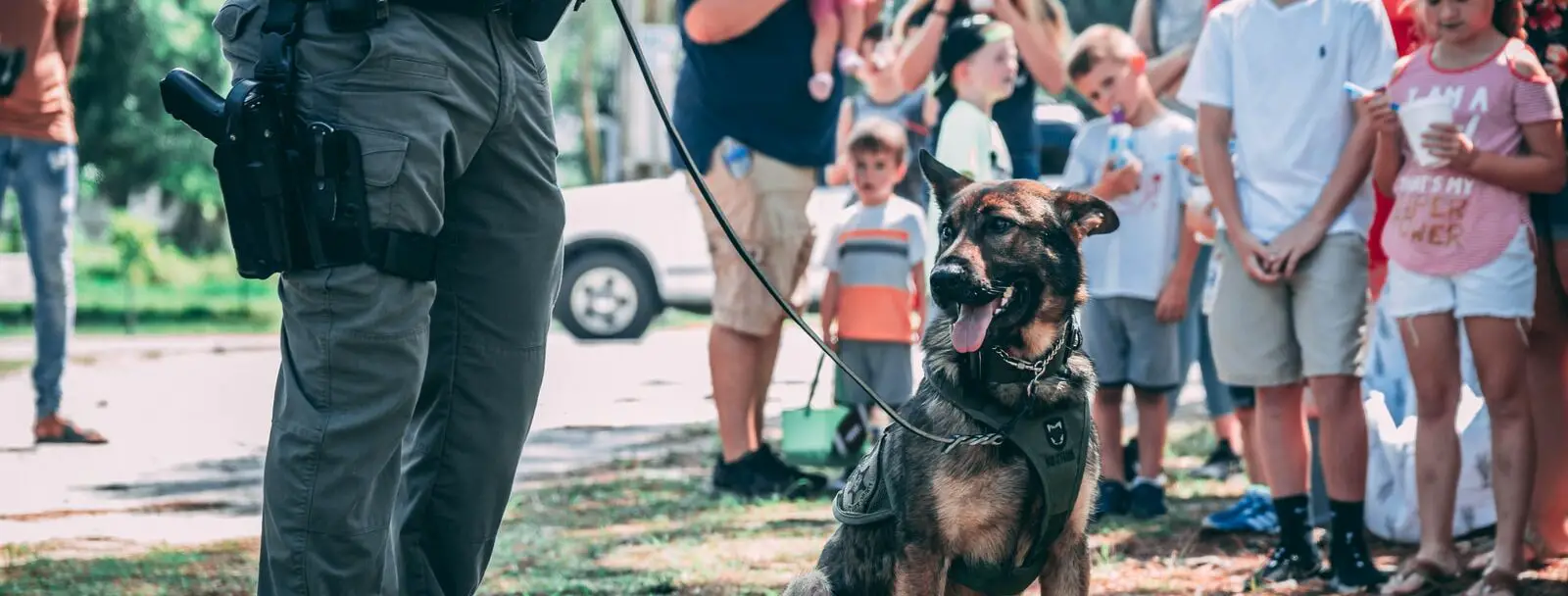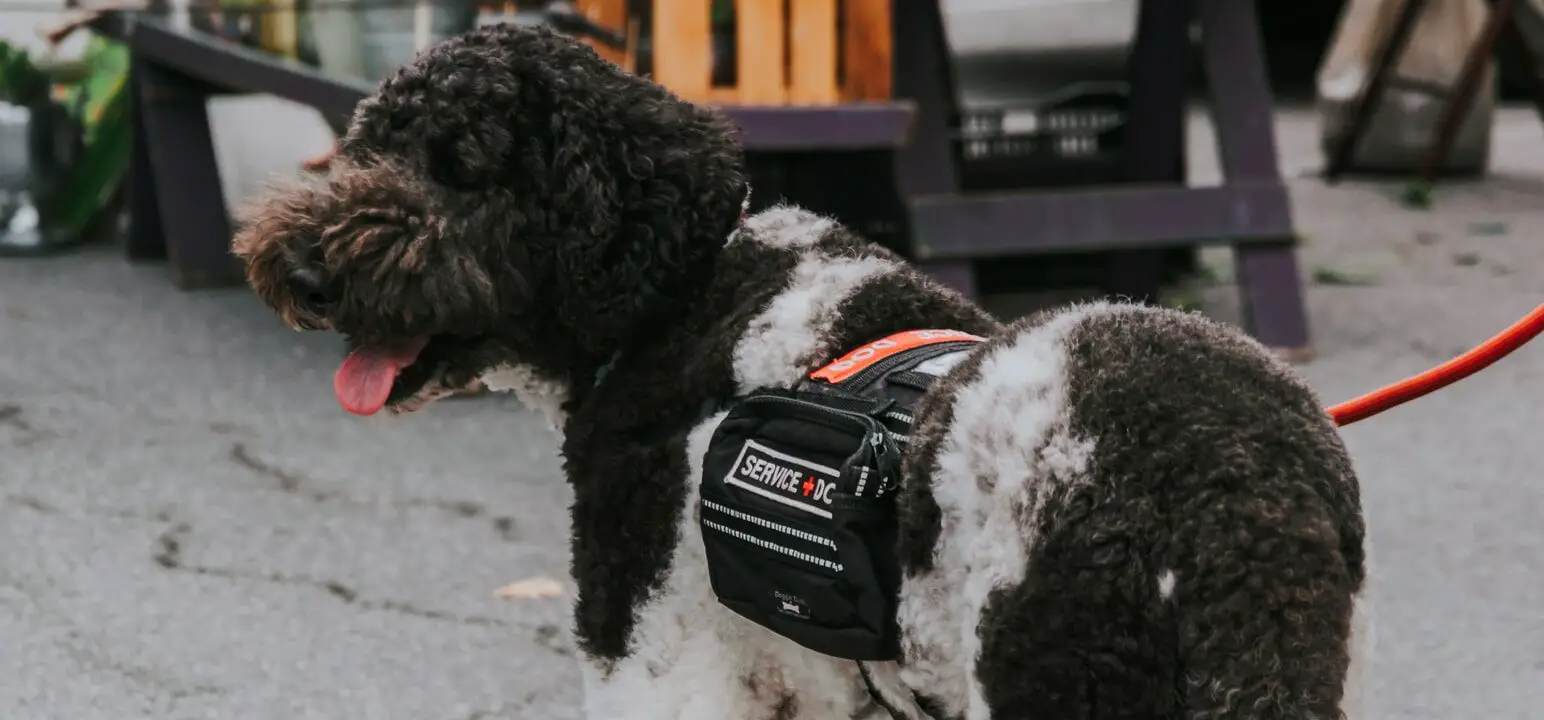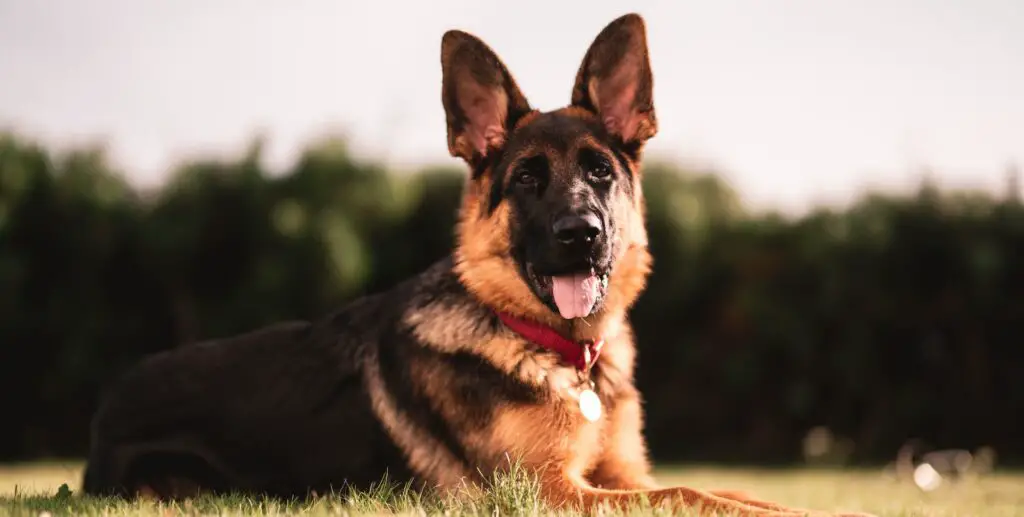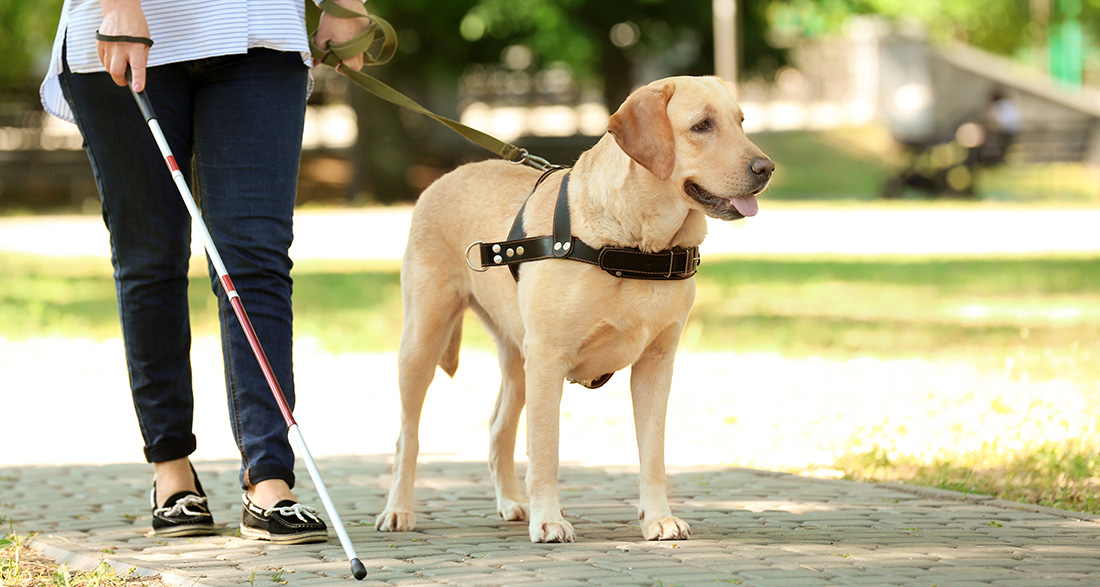Dogs are truly incredible creatures. They can be not only loyal companions enriching our lives but also significantly ease the daily lives of many people. A special category of dogs, namely service dogs, provides great assistance to individuals facing mental, emotional, or physical challenges. The tasks of a service dog can range from calming their owner to aiding mobility-impaired individuals in walking.
Key Points:
- Service dogs are trained to assist people with mental or physical disabilities in their daily lives.
- Labradors, Golden Retrievers, German Shepherds, Poodles, Boxers, Great Danes, Border Collies, Bernese Mountain Dogs, Pomeranians, and Cavalier King Charles Spaniels are considered the best service dog breeds.
- A good service dog should possess qualities such as willingness to work, calm behavior, intelligence, friendliness, and obedience.
What Are Service Dogs?
Service dogs are specially trained to assist people with various disabilities. An example of a service dog is a guide dog for the blind. However, there are many other tasks that dogs can perform to make the lives of individuals with disabilities easier and support their independence. Some dogs can guide deaf individuals or those with limited mobility. Others retrieve or carry objects for their owners, while some warn their owners about allergens in the environment or an impending attack.

Service dogs are allowed to accompany their owners in public places such as restaurants, hotels, and airplanes to provide necessary support.
Types of Service and Assistance Dogs
Dogs can fulfill various helper roles in society, but not all of them are considered service dogs. Let’s explore some of the most common types of service dogs.
Therapy Dogs:
Primarily helpful for individuals who have experienced traumatic events in their lives and now suffer from mental illnesses or varying degrees of mental stress. Therapy dogs are deployed in hospitals to provide comfort to patients and can help students alleviate stress before exams. Therapy dogs primarily serve to uplift others.
Emotional Support Dogs:
Dogs for emotional support help their owners cope with anxieties, depression, post-traumatic stress disorder (PTSD), or other emotional challenges. Some pets calm their owners by merely being close, while others intervene when a person experiences acute bouts of anxiety or fear. Thus, personal therapy dogs can stop panic attacks and calm their owners by jumping into their laps, cuddling, caressing, and showering them with love until they settle down. This typically helps owners regain a sense of security.
Service Dogs:
Unlike therapy and emotional support dogs, service dogs are trained to perform specific tasks. These dogs assist individuals with physical impairments. The most well-known pets in this category are guide dogs for the blind, accompanying their owners through life, whether crossing a busy street or navigating a crowded sidewalk full of people. Some dogs help people with hearing impairments by alerting them to sounds they might not otherwise notice. Other dogs can assist with mobility by bringing things to their owners and even pulling wheelchairs up ramps.

Service dogs are also trained to help individuals experiencing seizures or medical conditions like diabetes. In the latter case, dogs notify individuals when their blood sugar levels reach dangerous levels.
A subcategory of service dogs is known as psychotherapy dogs, trained to assist people suffering from depression, anxiety, and PTSD. They sense when their owner experiences negative symptoms such as a panic attack or flashback.
Service and Rescue Dogs:
Several dogs are trained to work with various types of security and rescue services. Some dogs, for example, work for the police or border patrol, helping detect people smuggling drugs. Others work in firefighting and can even provide life-saving assistance. The same applies to dogs used in search and rescue operations.
Sometimes, the tasks of different types of service dogs overlap. However, precise classification is crucial. While service dogs can go almost anywhere, there are some restrictions for therapy dogs. Therefore, it is essential to distinguish between service dogs, emotional support dogs, and therapy dogs, even if they may appear similar at first glance.
What Skills Should a Service Dog Have?
Several characteristics define a good service dog. Here, we delve into some of the most critical qualities of service dogs and explain why they are essential.
Intelligence:
The fundamental quality of a good service dog is intelligence. Without it, dogs cannot be trained for their tasks, which is particularly important when some of these tasks can be life-saving. While not all dogs are trained for all tasks, a high level of intelligence is undoubtedly necessary.
Friendly and Calm Demeanor:
Since these dogs often work closely with people and other animals, they must have friendly personalities that allow them to get along well with others. While defensive or overly protective dogs may be suitable as guard dogs, they generally lack the necessary skills to serve as emotional support, therapy, or service dogs.
Service dogs may encounter situations where they are under immense pressure. Therefore, they need to remain calm in all possible circumstances. They should not have an overwhelming desire to play or react curiously to other dogs.
Strong Work Ethic:
While some dogs are lazy and enjoy lying around the house for hours, the character of service dogs should be the exact opposite. Often, service dogs need to work for extended periods or be constantly vigilant if trained to heed specific warning signs. Service dogs require a strong work ethic to perform their tasks correctly.
Obedience:
While some dog breeds are intelligent but stubborn and challenging to train, breeds frequently used as service dogs often exhibit the type of patience that makes it easier for them to learn the necessary skills and techniques.
Ability to Bond:
Finally, the ability to bond with human companions is also crucial. This applies to service dogs and dogs used as police or security dogs. They must build a connection with their human companions to fulfill their tasks to the best of their ability.
Top 10 of the Best Service Dog Breeds
In the following, we introduce you to the top 10 best service dog breeds, explaining the tasks they can fulfill and discussing the characteristics that make them well-suited for their respective roles.
German Shepherd:
German Shepherds are intelligent, alert, and easily trainable dogs. While often associated with guard and protection duties, they can also be affectionate companions, forming a close bond with their owners. When such a dog enters a home, it quickly becomes a full-fledged family member.

Bred originally to perform the tasks of a herding dog, German Shepherds possess valuable traits such as endurance, high performance, and decision-making ability. Subsequent selection has further improved the breed, making them perfect service dogs.
They excel as protectors, guards, leaders, herders, and companions. Due to their size, German Shepherds are suitable for supporting individuals with mobility restrictions. They can also assist their owners in overcoming fears. Properly trained, they can even recognize sudden issues like panic attacks and successfully prevent or provide love and support to their owners.
You can keep a German Shepherd in an outdoor enclosure, a house, or even an apartment, but keep in mind that they shed quite a bit.
Labrador Retriever:
Labrador Retrievers are one of the most popular dog breeds because they are loving, friendly, and intelligent companions.
Most commonly used as guide dogs for the blind and hearing assistance dogs, they can also be of great help to individuals with mobility restrictions. This is due to their natural retrieving instinct (as their name suggests) and a soft mouth, making them able to grip objects gently, reducing the risk of damage.
They can be incredibly calming companions, providing emotional support to their owners. Labrador Retrievers possess a lot of patience, helping them calm people. Moreover, they can excellently assist children with ADHD or autism.
Golden Retriever:
Similar to Labrador Retrievers, Golden Retrievers can be perfect service dogs. They are not only intelligent but also easy to train. Additionally, they have loving and caring personalities, making them popular pets.
Although Golden Retrievers are quite large, they do not have an intimidating appearance. They are excellent for individuals with post-traumatic stress disorder (PTSD) and can also guide the blind and help people with mobility issues. They naturally learn to love their owners and obey them.
Poodle:
While the first three examples of service dogs are quite obvious, the small and chic Poodle might not immediately come to mind when you think of a dog that can help its owner.
However, they are, in fact, very clever dogs that are easy to train and often enjoy having a task. Poodles come in various sizes, but usually, only standard poodles are trained as service dogs. The name can be a bit misleading because the standard poodle is the largest of the group compared to the miniature or toy poodle. Naturally, they cannot perform the physical work that larger breeds mentioned above can, but they can still be very helpful.
Pomeranian:
This is another breed that, due to its small size, may not be immediately considered a service dog. Like Poodles, they cannot take on the most intense physical tasks. However, that does not mean they cannot be useful.
Pomeranians form a close bond with their owners and can be very attentive to their needs. Therefore, they are a perfect choice for individuals suffering from PTSD, epilepsy, and autism. They can also be very helpful for diabetics as they have a knack for detecting low blood sugar. If a seizure is imminent, Pomeranians can warn epilepsy patients and comfort them when it occurs.
Border Collie:
Border Collies are among the most intelligent dog breeds and can be easily trained for a variety of tasks.
Their strong herding instinct has made the breed popular among farmers to keep livestock in check. However, these strong instincts do not necessarily make them the best choice for families with small children, as there is a risk of them knocking the children over.
Border Collies also need regular exercise and are best suited for owners living in homes with access to the outdoors. If you do not provide enough space for your dog, it can lead to undesirable behavior, such as excessive barking and even destruction. Remember to mentally stimulate Border Collies with games and interactive toys.
Bernese Mountain Dog:
Bernese Mountain Dogs possess many of the qualities required for a good service dog: intelligence, friendliness, and a strong work ethic.
Thanks to their size and strength, they can perform various physical tasks, while their mental abilities help them learn more complex tasks. This breed is also known for pulling carts or wheelchairs and generally assisting in the mobility of individuals who cannot move. Emotional support is another positive attribute that Bernese Mountain Dogs can provide.
Keep in mind that these dogs are not suitable for warmer climates. Also, this breed requires a lot of exercise, so you should not keep them in an apartment.
Great Dane:
The Great Dane is considered one of the best service dog breeds. Being large and strong, they can help individuals with movement or balance problems. They are gentle giants that provide psychological and emotional support to people in need. When trained, Danes remain focused on their owners and pay little attention to strangers.
Again, it is crucial to ensure that you have enough space for a dog of this size and to provide them with the right nutrition and plenty of exercise.
Cavalier King Charles Spaniel:
The Cavalier King Charles Spaniel is not only a handsome dog but is also excellent for various tasks. Building a strong bond with its owners, it can help people overcome psychological problems such as depression. Cavalier King Charles Spaniels are one of the best service dog breeds for people with PTSD. It is not surprising that they are intelligent and easy to train.
Remember that your dog should be both mentally and physically well-stimulated.
Boxer:
Boxers have many qualities that make them excellent service dogs: they are intelligent, trainable, and friendly. However, this breed is not as commonly used as a service dog as many of the others we have described above. One of the most positive aspects of Boxers is their ability to interact with both adults and children. Like some of the other breeds mentioned above, they need a lot of physical activity. Otherwise, they can quickly become bored and restless. Their protective nature has made them popular guard dogs; they can also support people with disabilities.
Boxers are perfect service dogs if you live in an apartment or a small house.
Final Considerations
Some dog breeds are better suited for service than others. The ten breeds presented here are among the most popular. Although these dogs come in different shapes and sizes, they all share one characteristic – they can make your life more enjoyable!
FAQ
What qualifies a dog as a service dog? If a dog is trained to assist people with physical or mental disabilities, it qualifies as a service dog.
Can I get a service dog for anxiety?
Service dogs are primarily intended for people with disabilities. If you do not have health problems, you should consider an emotional support dog instead of a service dog.
Can a service dog be left alone at home?
Yes, you can. You are not obligated to take a service dog with you when you leave the house. However, make sure that your dog is ready to be alone and does not develop fear or restlessness.


